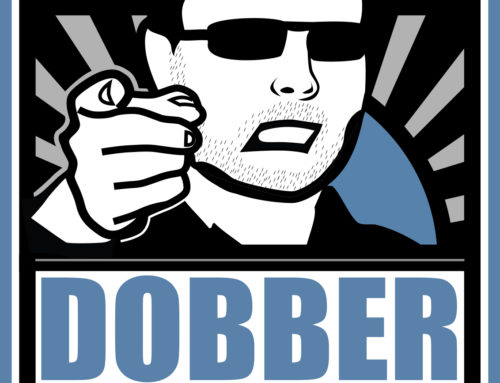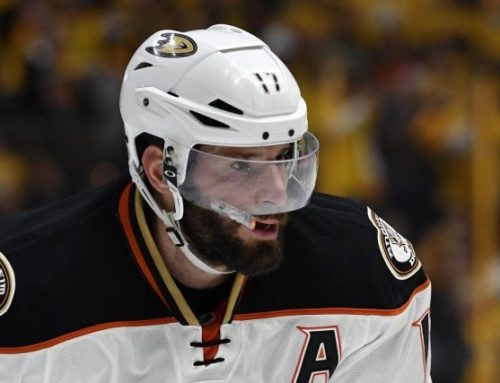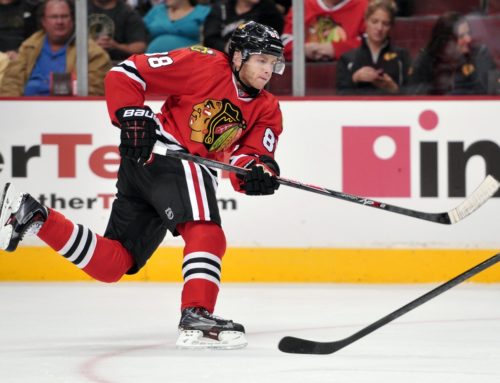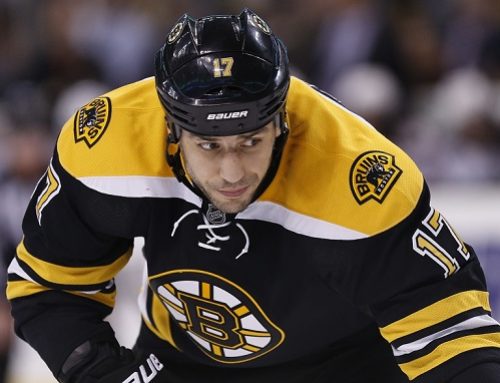The Stamp of Credence
Justin Goldman
2009-05-18

Thanks to the Beast Tracker , which can personally assist you in analyzing post-season goaltending, I’ve uncovered some awesome trends through the first two rounds. Beyond getting a better grip on how each goalie is performing statistically, a number of other in-game aspects have enriched my understanding of what it takes to win the Stanley Cup. Two of these trends that are of utmost importance, experience and exhaustion, will be discussed in this week’s School of Block lecture.
Let’s start with the latter, exhaustion. Roberto Luongo, please come to the front of the class, you’re my prime example. Roberto faced 304 shots against in just 10 games this post-season, averaging just over 30 shots per game. His play worsened as each game rolled along, a simple indicator that he was over-worked physically. Combined with the emotional toll he took from being team captain, these two aspects proved to be the source of his exhaustion.
What’s the lesson learned here? Never make a goaltender the team captain, no matter how good he happens to be. An elite goalie needs to spend all of his energy focusing on winning, continually refining their positioning and rebound control, etc. To take away from that focus by forcing him to deal with the media and the other nuances of being the team captain is to drain their energy and strength down the stretch.
And what exactly do I mean by exhaustion? When a goalie can no longer maintain the focus needed to stop every single puck fired his way in an efficient and effective way. That means they can no longer move laterally from post to post to make a save without giving up a massive rebound. It means they struggle to cover the puck when it’s at their feet amidst madness in the crease. It means they are lunging in an effort to knock pucks away instead of showing patience. It also means struggling to make the routine save without exerting more effort than needed.
Luongo failed to do these things in the final period of Game 6, making it extremely obvious he was just flat out tired. But to his defense, it was not his lack of focus in that game that caused the Canucks to lose the series. Sometimes the players in front of a goalie need to recognize when said goalie needs a break. Detroit is brilliant at tightening up defensively for Chris Osgood when he needs it: they can put up periods where they only allow 4-5 shots against on a regular basis. If you want to talk about sittin’ pretty with a lead, well, the Wings are the kings of this.
But even with his groin injury giving him time to rest up for the playoff push (similar to Nikolai Khabibulin), Luongo just faced way too many shots and scoring chances as each game went on. He was stellar in the series against the Blues, rarely showing physical strain and wore down quickly from there. The young and speedy Blackhawks forced him to move faster and make quicker decisions and that made all the difference in the world.
When you have to move and act quicker, you’re forced to exert more energy and store less over time. So the Blackhawks’ relentless pursuit never allowed Luongo a chance to settle in and get into a rhythm. It was one of two extremes for him; either a ton of shots with no rest in a furious scoring push or a couple of shots every 5-10 minutes. That’s a nightmare for any goalie trying to stay mentally sharp and focused in the playoffs.
Real quickly, a few points about lunging – it’s important to understand the term when it comes to goalie exhaustion. Lunging simply means diving out at a puck in an effort to make a play. I believe that there’s absolutely no reason for a goalie to resort to lunging at a puck. It’s an impatient play and one that shows a lack of focus. Goalies should never dive out to cover a puck, attempt to poke-check, or try batting it out of the air. The act of moving to make the play opens up holes and gives the shooter a chance to force the goalie out of position with a simple deke.
Once you’re caught lunging, you’re at the mercy of everyone else on the ice. Tim Thomas did this on Scott Walker’s game-winning goal. Thomas made the initial save, but tried to attack the rebound by lunging out with his stick to try and make a play. It was that unnecessary movement that opened up holes for Walker to bang home the rebound. All Thomas had to do was square up those shoulders, tighten up the holes and let the puck hit him. To me, Walker’s goal exposed Thomas’ lack of focus, even if it was for a split second.
But the real stamp of credence this month is one thing and one thing only; experience in the playoffs. That’s how Chris Osgood was able to survive the Anaheim Ducks and that’s how Cam Ward escaped the clutches of the Boston Bruins with another Game 7 victory. And even though Thomas had more years of experience on the ice as a pro, Ward had more experience in the playoffs…where it actually matters.
And since Osgood and Nikolai Khabibulin are both the same age and have about the same playoff experience, shouldn’t the edge obviously go to Osgood in this series since he has three rings compared to one?
Of course he should. I mean, did you see how he and the entire Red Wings team handled the adversity of being down early in Game 1? It was remarkable, as was Osgood’s play in the second and third period, even though I strongly feel that he was nursing some type of nagging injury in the final period of Game 7 against the Ducks.
This leads me to need to explain what I saw in Game 1 against the Blackhawks. There were a number of times, especially in the second period, where Osgood had a chance to play the puck. But instead of skating to the puck and firing it up the ice, he stayed within his crease, waited for the puck to come to him and then pushed it to the corners. I saw this at least three times in various situations throughout the game.
Now I’m led to believe one of two things. Either Osgood is in fact nursing something, or he’s actually changing his positioning in this series to be more focused on his play in the crease. Either way, it’s very obvious to me that he’s playing DIFFERENTLY than he did in the first round. He’s not moving nearly as much, his footwork is more efficient (less movement), he’s more anchored in his crease and most importantly, he’s letting the play come to him. Is this a byproduct of nursing an injury or is he simply playing with more poise than anyone expected?
To me, it’s a combination of both. In fact, it almost looks like this “nagging injury” I speak of could actually be seen as a blessing in disguise. It’s almost like the supposed tweakage I speak of may have actually helped him to “do less” when it comes to playing the puck and focus more on the play coming at him. Hey wait a second, isn’t that what I’ve been harping on Marty Turco to do for the last two years? Focus more, move less. Save energy, make solid saves.
Now please realize that a lot of this is my own sheer speculation. I would never try to create drama by “reporting” that Osgood has an injury. I’m not a hockey reporter, I’m a goaltending analyst. And what I saw in Game 7 of the Ducks series is exactly what I saw. I’m not a goofy newspaper columnist aiming for X number of reads. I’m simply writing about the nature of goaltending and it just so happens to be about the goalie I’ve watched for about 15 years.
So if you know anyone that has watched Ozzie play this year, ask them what they saw over his last four periods. Don’t be surprised when most of them say he “looked different” in that third period against the Ducks. And again in Game 1 against the Blackhawks, he looked a little different in the crease as well. It was just obvious.
What’s hilarious to me is that none of it really matters. Osgood is playing through everything with a ton of poise and he’s not panicking when a puck beats him. In the past, a goal like Adam Burish’s would have destroyed his confidence. But in Game 1, he just let it happen and didn’t even as much as shake his head in disgust.
So even if he is slightly injured (which player isn’t this deep into the playoffs anyways), he’s doing everything a totally healthy goalie SHOULD do right now – display confidence throughout every period, game and series, regardless of how many goals are allowed.
And what do you know…Ward is displaying the exact same qualities in the Eastern Conference. His own big-game experience, display of relaxation and lack of being “mentally exhausted” should result in a paramount clash in the Stanley Cup Finals between the Red Wings and Hurricanes.
Be sure to check out The Goalie Guild’s updated BEAST TRACKER throughout the playoffs by clicking here !





 PHI
PHI WSH
WSH FLA
FLA MIN
MIN N.J
N.J T.B
T.B BUF
BUF DAL
DAL MTL
MTL NYR
NYR CBJ
CBJ TOR
TOR NYI
NYI DET
DET STL
STL WPG
WPG CHI
CHI VAN
VAN SEA
SEA COL
COL NSH
NSH BOS
BOS EDM
EDM CAR
CAR UTA
UTA OTT
OTT CGY
CGY PIT
PIT ANA
ANA S.J
S.J VGK
VGK L.A
L.A
